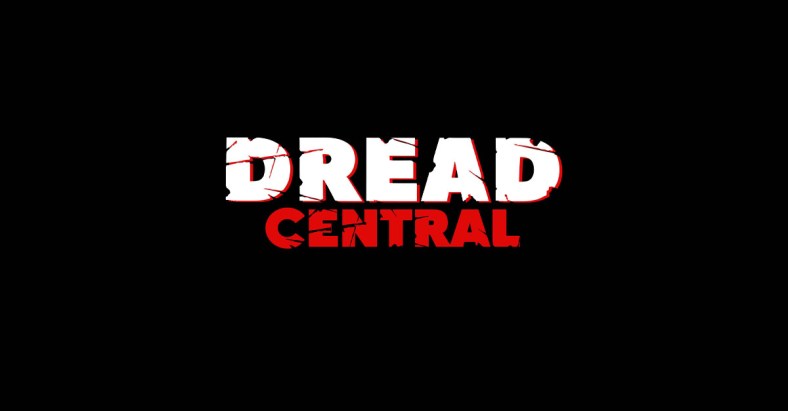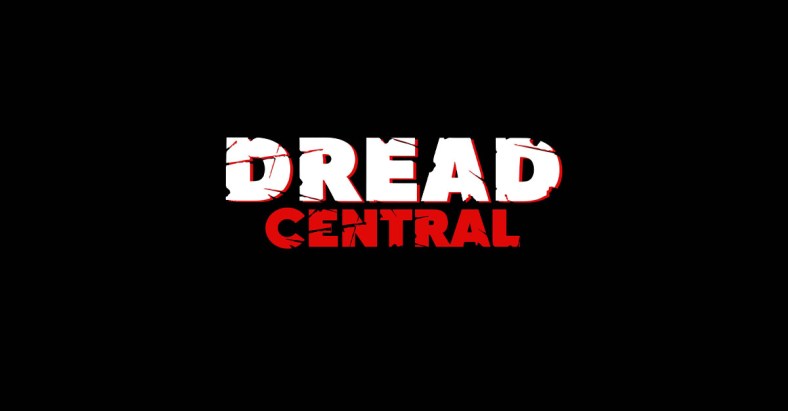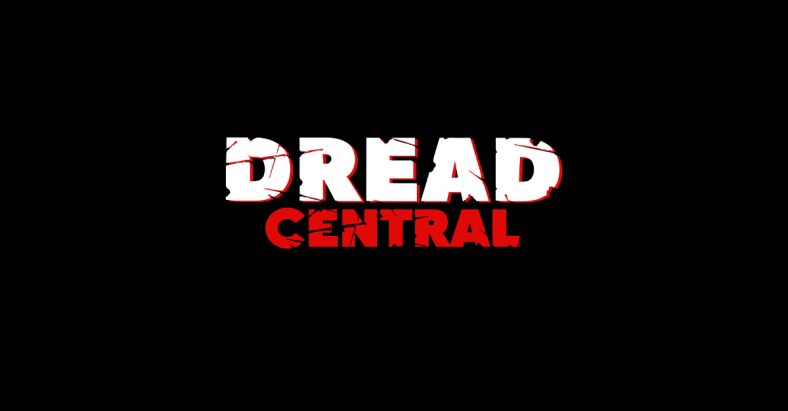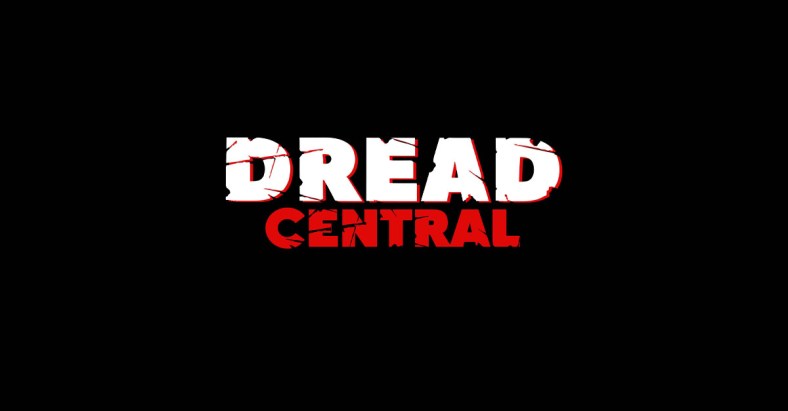Nicolas Winding Refn and Cliff Martinez Discuss the Dark Side of Beauty, Taking Risks, and the Hypnotic Soundtrack of The Neon Demon

Fresh off of the notably divisive response it received at Cannes — where both wild praise and jeers reportedly flooded the premiere screening — Danish auteur Nicolas Winding Refn’s The Neon Demon will have a go at the general public as it sees its wide release this week.
As might be expected when approaching one of Refn’s films, the director’s first proper foray into horror is far from your traditional fare. A vicious story about the cutthroat world of modeling and L.A. glamour, The Neon Demon is a unique artistic experience, marked by electrifying visuals, sparse dialogue, and heavy with symbolism and narrative ambiguity, not fully playing its more recognizable horror elements until late in the story.
Our very own Staci Layne Wilson was ultimately a fan of the brazen film, praising its style and bold artistic approach in her review but noting that Refn’s latest work is certainly not for everyone. Following an advance screening of the film in Austin, TX, last week, I found myself leaving the theater feeling much of the same; there is much to take in upon experiencing a film like The Neon Demon, and it is ultimately as devilishly amusing as it is perplexing.
With many questions still lingering, I was fortunate enough to be able to sit for a chat with Refn and composer Cliff Martinez to discuss the ins and outs of creating a unique genre experience. We touched on the director’s creative process, securing star Elle Fanning, Martinez’s hypnotic score, and more — slowly unearthing the story beneath Refn’s latest mind-bending film.

Coming off a string of very violent and markedly masculine films — including Bronson, Valhalla Rising, and Drive — Nicolas Winding Refn ultimately felt a pull away from this male-centric focus for which his work had become known. This shift was most evident in the direction Only God Forgives, Drive’s follow-up, took narratively. “I think Drive is certainly hyper-masculine, and I think Only God Forgives is about emasculating that certain thing that was in Drive,” the director observes. “It was a way to get into The Neon Demon.”
Refn’s wife — actress and documentary filmmaker Liv Corfixen, to whom the film is dedicated — and daughters were also to credit for story that became The Neon Demon. Refn recalls the realization that kick-started the creative process for the film: “Several years ago, I woke up one morning and exacted the terms that I wasn’t born beautiful and my wife was. [… And] I think everyone fantasizes about what it would be to look different, to be different, to feel different. At the same time, having daughters that are starting to be exposed to digital revolution and the power of images that is more and more controlling their lifestyle… I thought that was a great basis to make a horror film about beauty.”
With his idea for a female-led film set in the beautifully dangerous world of L.A., Refn’s task was to find the perfect actress to embody the lead character, Jesse. “When I was casting the movie in L.A., there were not a lot of options,” Refn admits. “The character [of Jesse] needed so much diversity in both how they looked, their acting abilities, and they needed to have that ‘thing’ so that it was believable that everyone wanted to consume it.” Once again though, his wife, Liv, came to his aid in the process. “It really didn’t change until my wife had seen one of Elle [Fanning]’s latest films… We were sent a photo fashion shoot of Elle that was really, really good; and I just instinctually felt, ‘It’s her; she’s the one.'”
From this point on, the mission was to secure Elle Fanning — a goal that moved closer to reality once Refn was finally able to meet with the young actress in his home after expressing a deep interest in casting her. “I said, ‘Look, I believe there’s a 16-year-old girl in every man, and you’d be my version of that. You up for it?’ And she was like, ‘Yeah, sure… what’s the movie about?'” he recalls with a laugh. “I told her a little bit about the ideas that I had for the film and the reason why I wanted to make it. And I think that she was very much taken with the idea of making a film for her generation because a lot of The Neon Demon is about the celebration of narcissism… which of course, being 16, she has a different view on that than I had. […] What was great was, [Elle] has the “thing.’ The movie could never have worked without her. She became the film.”
Fanning’s role is certainly one that will surprise audiences who might be familiar with the actress from more family-friendly films. The Neon Demon‘s narrative is at times subtly unsettling and viciously jarring at others, with Fanning contrasting Jesse’s doe-eyed appeal with a heavy dose of darkness. “I wanted this ambiguity of ‘Is she initiating everything, or is she a victim?’ and that you could see it from both sides,” Refn states of Jesse’s trajectory in the film. “It was always this ambivalence of ‘Was she evil, or was she good?’, and that of course makes it a much more free-fall kind of a movie, but it also heightens the experience.”

Seeking to create yet another memorable cinematic experience with his own brand of horror, Refn called upon previous collaborator Cliff Martinez. Upon scanning Martinez’s body of work for the past three decades, it would be reasonable to assume that he must have quite the affinity for psychologically dark and curious genre films; his resume boasts scores for the likes of Sex, Lies, and Videotape; The Fifth Element; Contagion; and Spring Breakers, to name a few. This is not necessarily the case, however.
“I think typecasting occurs in the music departments,” Martinez admits. “I guess I’ve been typecast as the ‘Prince of Darkness’ — the guy that does dark, psychological stuff. […] The films seem to come to me. I mean, I would love to be in a position in my career where I can be selective and say, ‘No… you, you can leave… I’ll take that!’ [laughs] For the most part I answer the phone, and I say yes, especially when Nicolas has got a project. I’m always very excited to work with him.”
That’s not to say that he doesn’t love the work — especially when he gets to explore new genres. “The horror thing was a new step for me. I’ve always wanted to do it. […] I’ve got a few favorite scores that are [horror]… Hellraiser is one of my favorites. Psycho, of course, is like one of the most amazing scores ever made. So I’ve wanted to do it. I wanted to do something that was completely unrelentingly disgusting, scary, and bloody; [and] this kind of satisfied that.”
The Neon Demon marks the third collaboration between Martinez and Refn, following Drive and Only God Forgives. It’s no surprise then that the score for this film follows somewhat in the vein of the duo’s previous work together. “Whenever we talk initially talk about the films […] I say, ‘I want to do something completely different; I want to completely reinvent myself and do something wildly different than I’ve ever done before,'” Martinez expresses, before acknowledging that this isn’t always so easy. “I don’t think either of us can really escape our unique artistic identities. It might not be a good idea if we did!”
The pulsating score of the film is certainly signature Martinez, featuring a dream-like soundscape that is both alluring and outright dangerous. It sets the slowly enveloping tone of the film from Jesse’s first stunning appearance, matching Refn’s glitzy — and, ultimately, blood-spattered — visuals frame for frame. “I see [The Neon Demon’s score] as an extension of previous work with a horror angle being kind of the new twist to it,” Cliff says of his score. “It’s a minimalist, beat-driven, electronic score; and that’s kind of where both of our tastes in film music are at this point in time.”
After three films, you can certainly identify a strong sense of mutual respect between the director and his composer. Beyond a professional esteem, however, also seems to lie a genuine desire in Refn to see his collaborators explore the far reaches of their own creative skills. “Directing is a lot of times about inspiring everyone else to do their best, and you don’t really do that by telling them what to do. You do that by letting them […] find out themselves,” the director states. “That’s why when you create a relationship with an actor or an actress or a composer, that is very much part of finding the movie. […] It’s all about trust.”
Martinez echoes this sentiment. “It makes all the difference in the world having the trust and the confidence and the support of the director, particularly a director that wants you to do something that sounds atypical or a little bit out of the ordinary.”
In the crafting a film’s score, Refn is naturally quite present in the process but remains flexible as the film takes on a life of its own. “We talk about, you know, what kind of beats we want to hit emotionally,” Refn says of one approach to collaboration with Martinez. “I can say I find these things need to be really thought out, of how we get to that place. But there is also editorially where I’ll do things; I’ll edit the film knowing that the music is going to complete the scene, so I leave a lot of trust in the hands of Cliff.” Despite his involvement in suggesting sound ideas to shape the direction of the score, Refn is quick to admit that he has no problem leaving many of the technical aspects of composing to Martinez. “I can’t play an instrument, I can’t sing, I can’t dance, I don’t have the confidence,” he admits.
“That’s never stopped me!” Martinez interjects with a laugh. Fearlessness in singing and dancing aside, he humbly credits Refn for helping him branch out and take chances. “I always tend to be really conservative because music just takes a long time to create so I don’t take that many risks, but Nicolas encourages risk-taking in the music. So that trust factor is a big deal and you kind of earn it, in our case, over three films. I seem to be getting bigger and bigger roles in Nicolas’ films.”
Listeners will also notice some original tracks on the soundtrack, which add another layer to one’s sonic experience of the world in the film. “My nephew [Julian Winding] has a band that was able to do a song for the film, and Sia very kindly was able to incorporate her song into the film.” Refn confirms though that at the end of the day, it’s still Cliff at the helm. “He sets the tone.”

Martinez’s pulsating score effectively serves to shroud some of the more opaque aspects of the film in even deeper mystery. When discussing these more ambiguous turns of plot in The Neon Demon, Refn asserts that nothing was left on the cutting room floor. The director holds that the decision to leave certain plot points open to interpretation was decided from the beginning, and he ultimately seems to have a great interest in giving audiences something to ponder.
“I think that creativity is more about the experience if you can talk about it,” he says, before adding with a smile, “You don’t get very far by being nice. Closure doesn’t really interest me because… then it’s over! Don’t you want to travel with this for the rest of your life?”
“I used to try and pry any information out of Nicolas,” Martinez chimes in. “I’d say, ‘You should tell me what it means, what do you mean, because I need to know! And he would say, ‘What do you think it means?’ [Laughs] So, I don’t ask those questions anymore.”
Jokes aside, Martinez too seems fascinated with this enigmatic narrative approach — even when scoring his films. “I think it’s important to stimulate the audience’s imagination and give them a multiple choice range of conclusions to draw from the film, and I kind of try to take that open-ended approach in the music. I don’t try to say, ‘This is what it means in all cases.’ I like to leave things open-ended; I think that’s more interesting.”
Despite the heavy symbolism and pointed commentary on superficiality that can be gleaned from The Neon Demon, Refn explains that he does not necessarily approach his films with any pre-established agenda or message in mind. “I’m not a political filmmaker,” he coolly admits. “It’s not that I have something that I want to specify or say. I just like to do what I do, you know. […] [It’s] about the reaction of creativity, so for me, it’s about having a good time.”
Succinctly summing up his approach to filmmaking in the most Refn way possible, the director adds, “I don’t really have an interest in films; I have an interest in experiences.”
The Neon Demon hits theaters on Friday, June 24th.

Categorized:News

